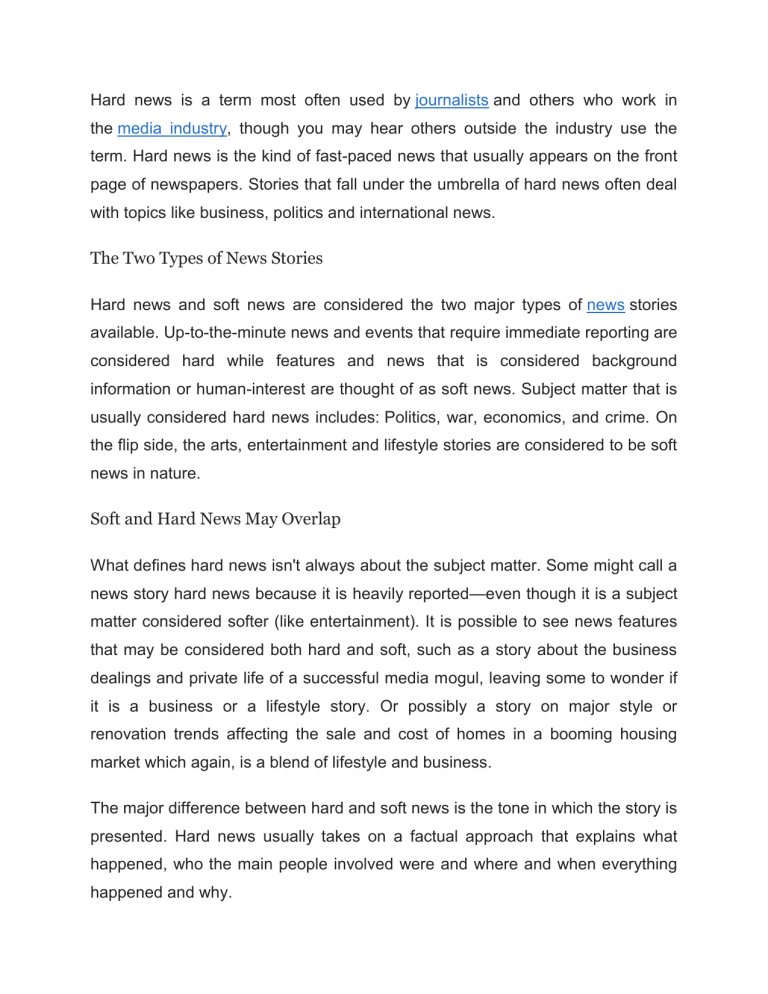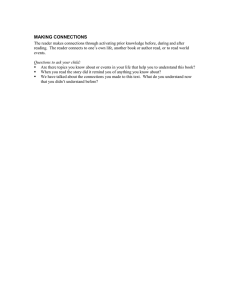
Hard news is a term most often used by journalists and others who work in the media industry, though you may hear others outside the industry use the term. Hard news is the kind of fast-paced news that usually appears on the front page of newspapers. Stories that fall under the umbrella of hard news often deal with topics like business, politics and international news. The Two Types of News Stories Hard news and soft news are considered the two major types of news stories available. Up-to-the-minute news and events that require immediate reporting are considered hard while features and news that is considered background information or human-interest are thought of as soft news. Subject matter that is usually considered hard news includes: Politics, war, economics, and crime. On the flip side, the arts, entertainment and lifestyle stories are considered to be soft news in nature. Soft and Hard News May Overlap What defines hard news isn't always about the subject matter. Some might call a news story hard news because it is heavily reported—even though it is a subject matter considered softer (like entertainment). It is possible to see news features that may be considered both hard and soft, such as a story about the business dealings and private life of a successful media mogul, leaving some to wonder if it is a business or a lifestyle story. Or possibly a story on major style or renovation trends affecting the sale and cost of homes in a booming housing market which again, is a blend of lifestyle and business. The major difference between hard and soft news is the tone in which the story is presented. Hard news usually takes on a factual approach that explains what happened, who the main people involved were and where and when everything happened and why. Soft news stories can be presented in a variety of ways, but they usually try to entertain or advise the reader in some way. Listicles, like "Top 10 Ways to Stretch After a Run to Ease Lactic Acid," are considered soft news, as are more in-depth entertainment features, such as the lives and scandals of famous politicians. Soft Leads It is important to note that even though some stories may be considered hard news in style, they may use a soft lead-in to capture the reader's interest (and heart). In general, soft news requires a different approach to lead writing and are often called delayed leads because they start telling a story before getting to the main facts. Soft-news lead-ins tend to be narrative or anecdotal in nature, where they tell a story instead of stating important facts. Feature stories (soft stories that are a little longer and more reflective) often use soft lead-ins and use more descriptive and colorful language before probing further. Such stories begin with setting the tone and introducing the reader to the atmosphere surrounding the story, before jumping into the who, what, when, where and whys. The story may then be finished up with a conclusion such as those of more traditional structures of storytelling.


